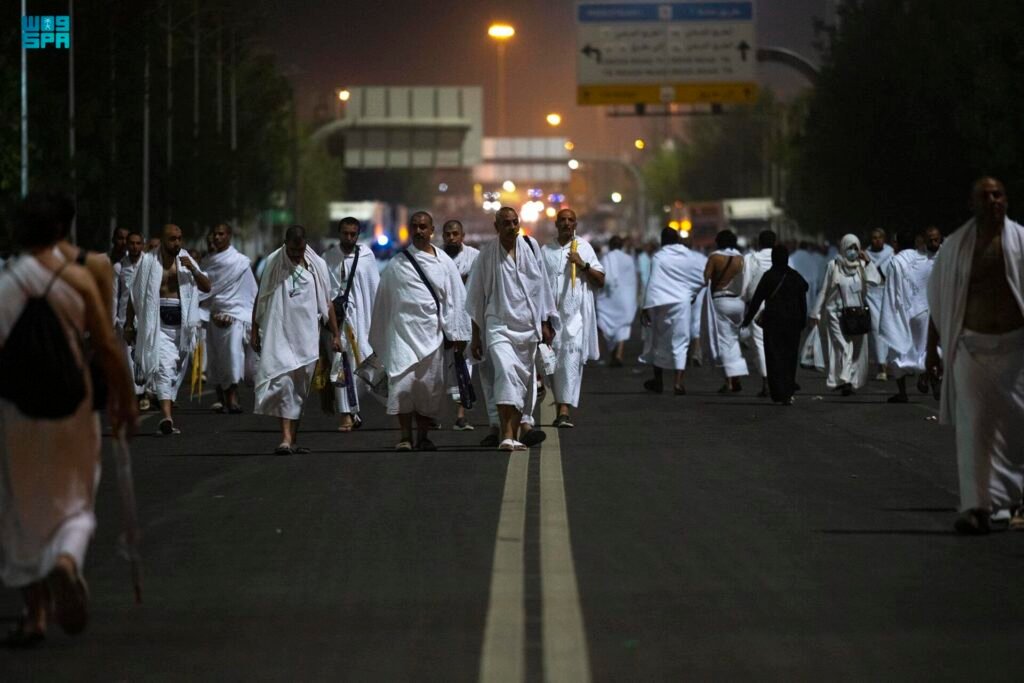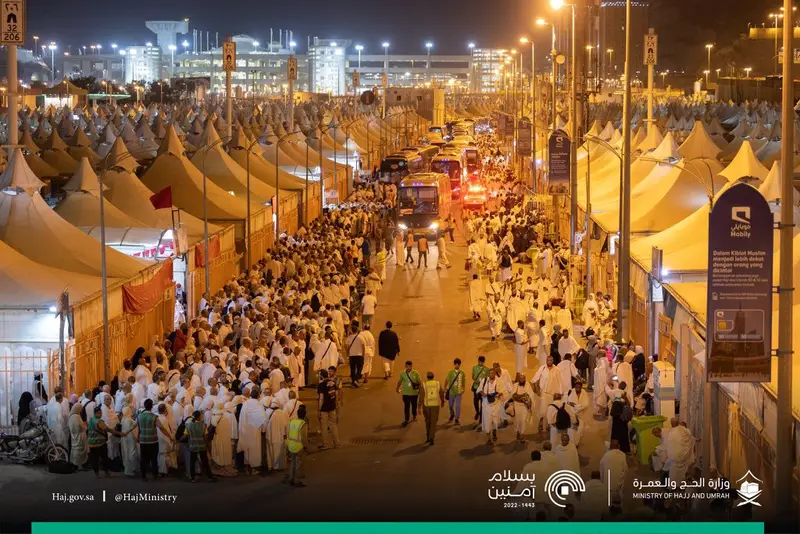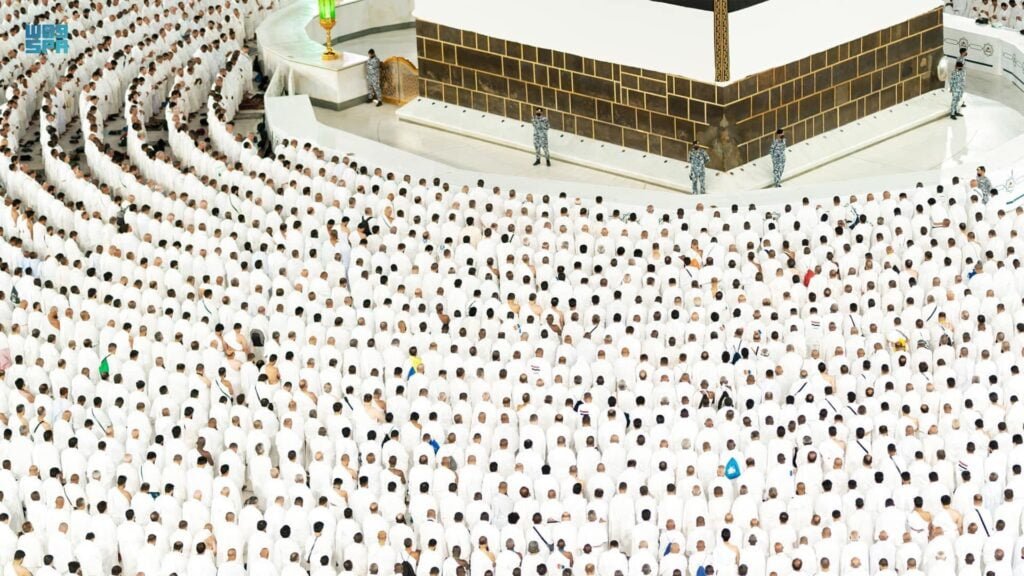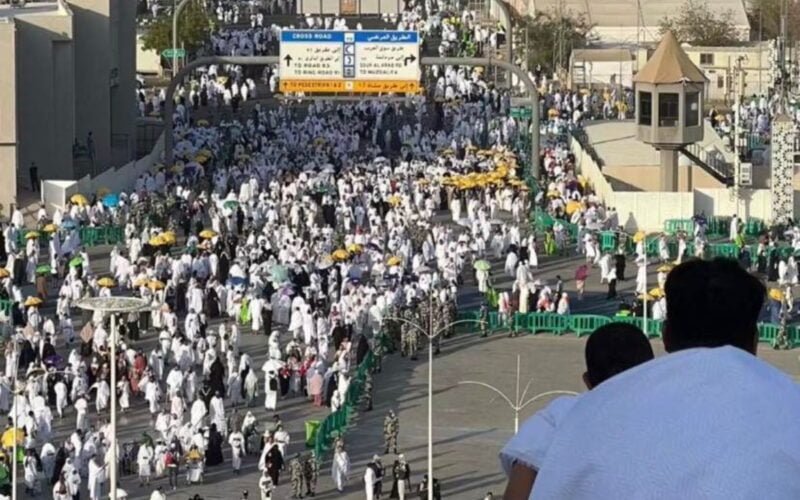One million Muslim pilgrims gathered to perform the annual Hajj 2022/1443 at Masjid Al Haram, Makkah, surrounding the Kaaba to begin performing the early rituals of Hajj.
It is marking the largest Islamic pilgrimage since the emergence of the coronavirus pandemic, which has restricted the annual pilgrimage for the past two years.
As one of the five pillars of Islam, Hajj is a once-in-a-lifetime obligation for all Muslims who are physically and financially able to spend a few days performing a series of rituals aimed at bringing them closer to Allah SWT, walking the path traversed by the Prophet Muhammad PBUH around 1,400 years ago.

When performing the pilgrimage, pilgrims in crowds will move counter-clockwise around the Kaaba, a cube-shaped granite building, while praying for supplication and forgiveness from Allah SWT. The Kaaba, a structure in the world meant to symbolize God’s oneness in Islam, is also a qiblah for all Muslims in any place in the world to conduct their five daily prayers.
Although it seems that pilgrims are no longer implementing the social distancing and mask requirement that has been applied for the past two years when crowding Masjid Al Haram, there are still signs of vigilance because Saudi authorities still prohibit people from touching Al-Hajar Al-Aswad, the black stone located in the eastern corner of the Kaaba for the third year.

Saudi authorities have also restricted the distribution of water from the Holy Zamzam well in bottles instead of allowing pilgrims to drink from cups in mosques. Thousands of medical personnel are known to be prepared around the ritual area to help worshipers in need.
This year, the Saudi Government has only opened registration for the Hajj pilgrimage to only 1 million foreign and domestic pilgrims who have been vaccinated against the coronavirus, tested negative for COVID-19, and must be between the ages of 18 and 62.

Even though the participation of this year’s Hajj is still far below the number of pilgrims who performed the pilgrimage in the years before the corona pandemic, which reached 2.5 million pilgrims, the presence of this year’s Hajj is considered a significant step that is almost close to normal after the Saudi government limited the annual worship to only several thousand Muslims living in the Kingdom for the past two years.
Subscribe to our channels on WhatsApp, Google News, Facebook and Instagram.Discover more from The Islamic Information
Subscribe to get the latest posts sent to your email.












